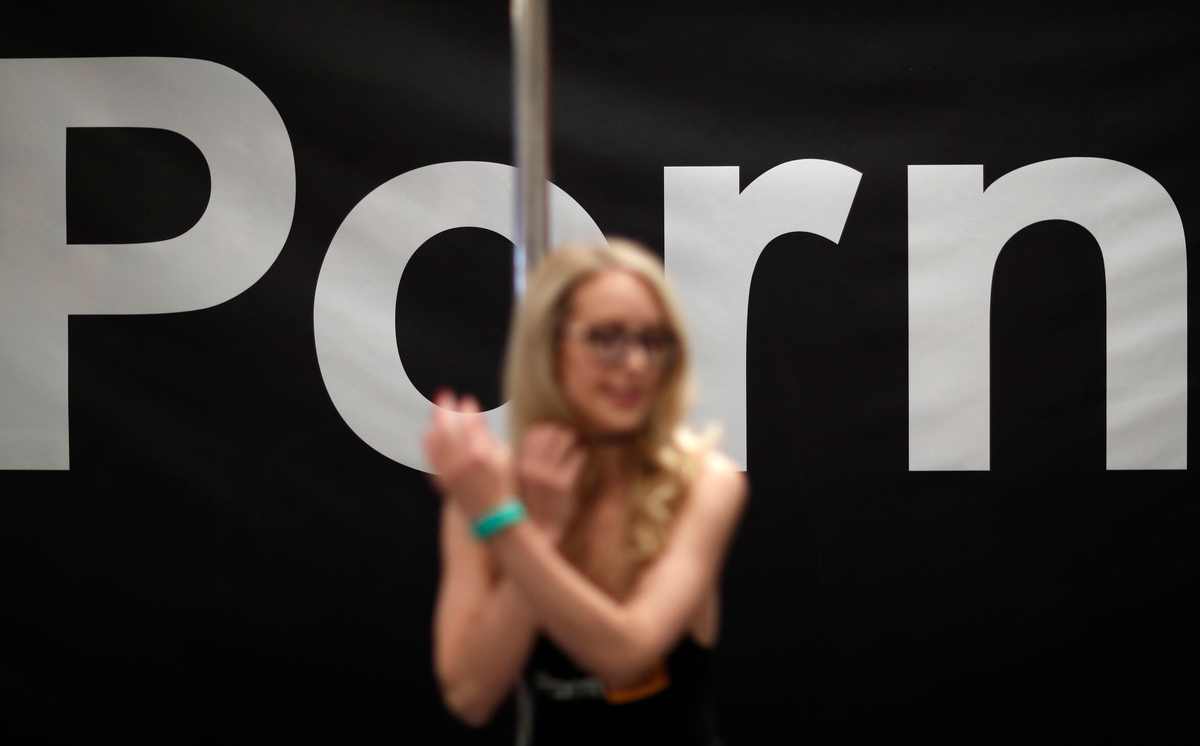
AUGUSTA, Maine — A Democratic lawmaker and the Christian Civic League of Maine do not agree on much, but a potential effort to require porn websites to verify users are at least 18 years old could bring them together.
State Rep. Lois Reckitt, D-South Portland, intends to submit a proposal for consideration in the 2024 legislative session modeled after a porn age-verification law in Louisiana signed by Democratic Gov. John Bel Edwards last year.
Six more states — Arkansas, Mississippi, Montana, Texas, Virginia and Utah — have passed nearly identical laws since then with unanimous or near-unanimous support from lawmakers. Pornhub, the largest porn site, stopped operating for now in Utah, Mississippi and Virginia instead of complying with the new laws, citing concerns around privacy and constitutionality.
It means any debate could have large implications in a live-and-let-live state. Maine voted overwhelmingly against an anti-porn law in 1986. The conversation could also harken back to past alliances between some feminists and conservative Christians who have taken different angles in their skepticism of porn from Playboy to Pornhub.
In Louisiana, the Republican champion of the bill said porn is “creating a public health crisis and having a corroding influence on minors.” It requires porn sites to verify visitors are 18 or older via a government-issued ID or another age verification system. The law makes porn sites liable if they do not comply or if they retain any identifying information of individuals after granting them access, with legislators also approving in June fines of up to $10,000 for violations.

Reckitt is working with legislative staff and leadership to review Louisiana’s law “to check for caution points.” If none are found, she intends to submit the proposal to the Legislative Council, a panel of top lawmakers that next meets in late September. There is no guarantee Reckitt’s proposal will get heard in 2024, as a majority of the council must agree bills deal with “emergencies” for the Democratic-controlled Legislature to consider them in even-numbered years.
“There’s a very tight interconnection, in my view, between pornography and both violence against women and prostitution,” said Reckitt, who sponsored a bill Gov. Janet Mills signed in June to partially decriminalize prostitution in Maine.
Reckitt, who is in her fourth consecutive term in the House of Representatives and is term-limited from running again next year, said her grandchildren also are on her mind.
The plan from Reckitt, long known for her feminist advocacy work and a member of the Maine Women’s Hall of Fame, has the support of the conservative Christian Civic League of Maine, according to Carroll Conley, the group’s executive director.
“Not only is this a good thing to do, it’s the right thing to do,” Conley said of Reckitt’s proposal, noting it is an example of the right and left working together despite often disagreeing on various things, including abortion.
For Conley, this cause is also personal. He was “trapped in porn” when he was a freshman and sophomore in high school, he said, adding he “can’t imagine what it’s like to be a teenager today” due to the prevalence of online porn.
Well before the rise of the internet, 72 percent of Maine voters voted in 1986 to reject a referendum pushed by the Christian Civic League that would have made it a crime to sell or promote obscene materials, with penalties of up to five years in prison and a $10,000 fine.
During legislative debate on the idea, one supporter railed against “smut peddlers” on the House floor. The other side made more nuanced arguments, including that the law was unlikely to be evenly enforced and could have wide implications. On the campaign trail, opponents distributed bumper stickers reading, “Don’t Make Freedom a Dirty Word.”

Louisiana’s law says porn contributes to the “hypersexualization” of kids. That echoed studies from groups like the American College of Pediatricians finding it can lead to low self-esteem, distorted views of relationships and increases in problematic sexual activity at younger ages, although other research also argues there are benefits including destigmatizing effects.
Opponents of the age-verification laws have pointed to past Supreme Court rulings striking down similar requirements as being too restrictive of protected speech. The Free Speech Coalition, a porn industry trade group, has sued Utah and Louisiana over their laws.
It views parental controls and device-level filters as effective methods to keep children from porn sites. Free Speech Coalition spokesperson Mike Stabile said the industry wants to prevent kids from accessing porn, “but these laws aren’t it.”
The coalition would “welcome” talking with Reckitt to correct “incorrect and incomplete information” it believes she is receiving from faith groups with “a wider censorship agenda” and “age-verification companies who may profit from it,” Stabile said.
Reckitt plans on talking with the American Civil Liberties Union of Maine about her proposal and will “make sure there’s not some kind of sinkhole in there.” But the Maine ACLU is concerned that Reckitt’s plan and similar laws rely on “unreliable new technologies” and the collecting of user data creates a security risk, spokesperson Samuel Crankshaw said.
“[People] have a right to access content and express themselves on their own terms without someone watching their every move — be it messaging a loved one, researching an embarrassing medical condition or viewing and reading pornographic content — a privacy this proposal would deny to people of all ages,” Crankshaw said.











